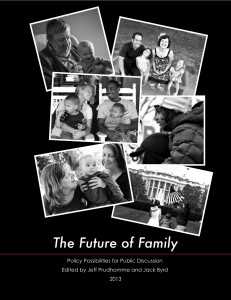The 288-page book, Tomorrow’s Change Makers: Reclaiming the Power of Citizenship for a New Generation, published September 2015, discusses youth civic engagement in the US and how youth can be more civically engaged.
About the book… 
Youth volunteerism and civic engagement has changed in America. While the numbers of young people who volunteer have risen substantially, recent studies show that very few find meaning and purpose through serving their communities. For many, volunteerism has become just another school requirement that bolsters a good college resume.
Dr. Marilyn Price-Mitchell suggests that in order for democracy to flourish, we must reverse these trends. Through real stories from civically-engaged youth, Tomorrow’s Change Makers illustrates the types of relationships and experiences that propel today’s young people to work toward the betterment of society. These narratives, combined with research in child and adolescent development, show why meaningful service should be at the heart of educating and raising American children. Introducing The Compass Advantage framework for understanding and applying core principles of positive youth development, Price-Mitchell demonstrates how families, schools, and communities not only play vital roles in raising tomorrow’s citizens, but also foster the conditions that help youth chart their own self-fulfilling pathways through life.
Each and every day, families, schools, and communities play important roles in raising compassionate young citizens. But how does this happen? How do we support young people to become their best selves in a global society?
Tomorrow’s Change Makers links the latest research on civic engagement with positive youth development, and provides practical, research-based advice on how to:
• Help young people transform volunteering, service learning, and civic engagement experiences beyond a requirement for college resumes to value-defining opportunities for personal growth and citizenship development.
• Utilize effective mentoring, coaching, and parenting practices that help young people believe in themselves and their abilities to improve the world.
• Cultivate eight core abilities that support youth development and engaged citizenship, helping children chart meaningful pathways through life and fulfilling roles in democracy and civil society.
• Encourage challenging and meaningful volunteering and service learning opportunities for every child, based on their unique strengths and interests.
For everyone who cares about the future of democracy and the wellbeing of generations to come, this book shows how families, schools, and communities play critical roles in raising and mentoring tomorrow’s citizens. Through powerful voices of passion-filled American youth, you learn about the relationships, experiences, and challenges that shaped their young lives of service, civic engagement, and commitment to causes bigger than themselves.
“Marilyn’s research study, based on interviews with highly engaged youth, is a scholarly, insightful, and impressive contribution to the field of civic engagement.” – Peter Levine, PhD, Associate Dean for Research, Tufts University Jonathan M. Tisch College of Citizenship and Public Service
More about Marilyn Price-Mitchell, PhD
She is a developmental psychologist and fellow at the Institute for Social Innovation at Fielding Graduate University where she studies how young people become caring family members, innovative workers, ethical leaders, and engaged citizens in an increasingly complex society. To learn more: www.mpricemitchell.com or read her blog: www.rootsofaction.com.
Follow on Twitter:
Resource Link: www.amazon.com/Tomorrows-Change-Makers-Reclaiming-Citizenship/dp/0996585109/
 Based in Dayton, Ohio, the National Issues Forums Institute (NIFI), is a nonprofit, nonpartisan organization that serves to promote public deliberation and coordinate the activities of the National Issues Forums network. Its activities include publishing the issue guides and other materials used by local forum groups, encouraging collaboration among forum sponsors, and sharing information about current activities in the network. Follow on Twitter: @NIForums.
Based in Dayton, Ohio, the National Issues Forums Institute (NIFI), is a nonprofit, nonpartisan organization that serves to promote public deliberation and coordinate the activities of the National Issues Forums network. Its activities include publishing the issue guides and other materials used by local forum groups, encouraging collaboration among forum sponsors, and sharing information about current activities in the network. Follow on Twitter: @NIForums.







 Edited by IF Fellow Jeff Prudhomme and the Interactivity Foundation’s president Jack Byrd, Jr., this guidebook asks readers to consider how public policy might respond to these concerns. It invites readers to explore and discuss what values or moral considerations shape these policies? What are the rights and responsibilities in regard to the family that public policy should take into account? How should we approach the relationship between political power and the family? What are other moral, legal, or political concerns that our family policies might need to address?
Edited by IF Fellow Jeff Prudhomme and the Interactivity Foundation’s president Jack Byrd, Jr., this guidebook asks readers to consider how public policy might respond to these concerns. It invites readers to explore and discuss what values or moral considerations shape these policies? What are the rights and responsibilities in regard to the family that public policy should take into account? How should we approach the relationship between political power and the family? What are other moral, legal, or political concerns that our family policies might need to address?
